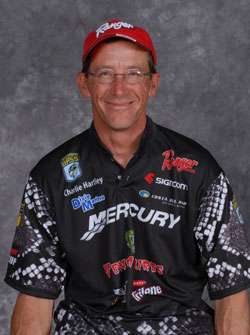
Forgive me if I brag just a little. You'll notice that my pick to win — KVD — did just that. OK, he wasn't exactly a dark horse, and my second pick had a miserable tournament, but still I got it right. Give me some credit for that.
The best part of his win is what it did for the sport aspect of professional fishing. There are a lot of people out there — even some anglers — who believe winning is basically a matter of luck. The theory goes along the lines that some guys find fish that bite, and they get the heavy sacks.
Well, this week blew that type of thinking out of the water. VanDam basically fished in a group of anglers, all of whom know how to make bass bite. But when it was over, he had the biggest fish. Why do you think that is?
Some theorize that he works baits differently than the rest of us. They believe that he has a "secret" cadence to his presentations that fish can't resist. Others take the view that he's the best angler ever at predicting where fish will be tomorrow, what mood they'll be in and what baits they'll bite.
I don't claim to know. If I did, I'd catch them like he does. I do know this, however: What he does isn't because of luck. You don't go out day after day, tournament after tournament, and win because you are "lucky." You do it because you have skills that are superior to those of your competitors.
So, the next time you hear someone say fishing is luck, put those things out to them. Ask them why some guys always have luck and others don't seem to ever have it. That should give them some food for thought and make them take stock of what we do. And maybe, just maybe, it'll cause them to think of us as professional athletes.
While I'm on a roll, you should know that I spent most of last weekend glued to the Internet watching the Classic unfold. I also heard some complaints about the lack of TV coverage. Now, I'm the first guy to want more coverage — anywhere, anytime, anyplace. By definition, more coverage is a good thing.
At the same time, however, this is not 1990. The Internet is not the future. It's the present. Wall-to-wall coverage on the 'net is not second-class. The Internet is a part of our daily lives. Nearly everyone has access to it and can watch if they want. We don't really use it so much as it's a part of us.
Major political speeches are given on it, major financial announcements are given on it, careers are made and destroyed on it and we all use it every day in our ordinary lives. (You're even reading my blog on the Internet through Bassmaster.com.)
Charlie Hartley is thankful for the Internet coverage. He enjoyed it and isn't complaining.

